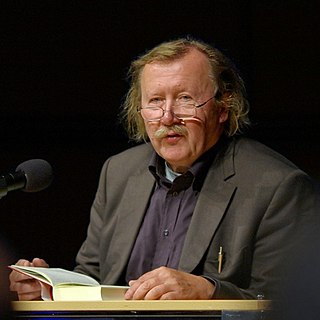A Quote by John Henry Newman
A science is not mere knowledge, it is knowledge which has undergone a process of intellectual digestion. It is the grasp of many things brought together in one, and hence is its power; for, properly speaking, it is Science that is power, not Knowledge.
Related Quotes
We should not be content to say that power has a need for such-and-such a discovery, such-and-such a form of knowledge, but we should add that the exercise of power itself creates and causes to emerge new objects of knowledge and accumulates new bodies of information. ... The exercise of power perpetually creates knowledge and, conversely, knowledge constantly induces effects of power. ... It is not possible for power to be exercised without knowledge, it is impossible for knowledge not to engender power.
The knowledge of the individual citizen is of less value than the knowledge of science. The former is the opinion of individuals. It is merely subjective and is excluded from policies. The latter is objective - defined by science and promulgated by expert spokesmen. This objective knowledge is viewed as a commodity which can be refined... and fed into a process, now called decision-making. This new mythology of governance by the manipulation of knowledge-stock inevitably erodes reliance on government by people.
Knowledge signifies things known. Where there are no things known, there is no knowledge. Where there are no things to be known, there can be no knowledge. We have observed that every science, that is, every branch of knowledge, is compounded of certain facts, of which our sensations furnish the evidence. Where no such evidence is supplied, we are without data; we are without first premises; and when, without these, we attempt to build up a science, we do as those who raise edifices without foundations. And what do such builders construct? Castles in the air.
Gradually, ... the aspect of science as knowledge is being thrust into the background by the aspect of science as the power of manipulating nature. It is because science gives us the power of manipulating nature that it has more social importance than art. Science as the pursuit of truth is the equal, but not the superior, of art. Science as a technique, though it may have little intrinsic value, has a practical importance to which art cannot aspire.
The violent, antirationalistic impulse in Western countries is reacting to an intellectual state of affairs in which all thinking has become strategy; this impulse shows a disgust for a certain form of self-preservation. It is a sensitive shivering from the cold breath of a reality where knowledge is power and power is knowledge.
The process of inner self-examination brings about a knowledge that is as rigorous and supported by evidence as anything science has to offer. At the same time, this point of view redefines faith as a knowledge that is attained not only by intellectual means, but also through the rigorous development of the emotional side of the human psyche. Such emotional knowledge is unknown to the isolated intellect and has therefore been mistakenly labeled as "irrational."
Without the power of intelligence there is no capacity for spiritual knowledge; and without spiritual knowledge we cannot have the faith from which springs that hope whereby we grasp things of the future as though they were present. Without the power of desire there is no longing, and so no love, which is the issue of longing; for the property of desire is to love something. And without the incensive power, intensifying the desire for union with what is loved, there can be no peace, for peace is truly the complete and undisturbed possession of what is desired.





































